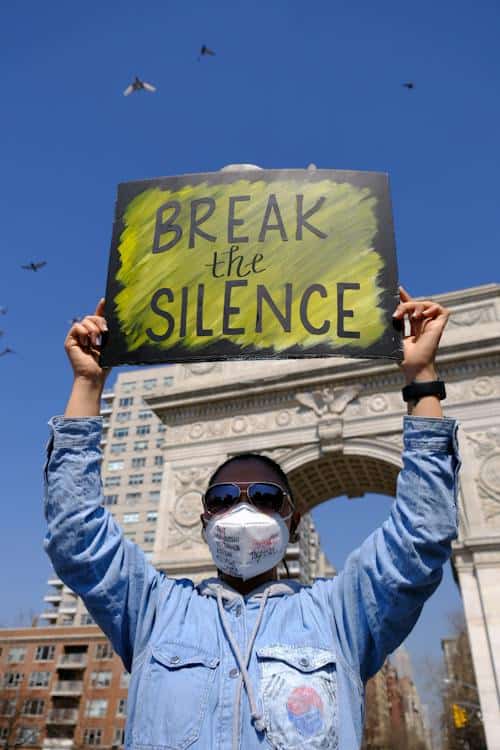
photo from Kate Godowski, Pixels
In today’s digital era, where the flux of information never ceases, the mediums through which we consume news and opinions, especially in the realm of politics, have significantly diversified. This change is notably evident among UK students. Balancing the demands of college life, from attending lectures to completing assignments, students have increasingly embraced political podcasts as a means to stay connected with the world of politics. This trend reflects a shift in how young adults consume information – blending learning with convenience.
Amidst their hectic schedules, juggling lectures, and dealing with numerous assignments, including the daunting task of lab reports – where some even resort to lab report writers from domyessay.com for help – podcasts have emerged as a beacon of information and analysis. They offer a flexible way for students to engage with political content, fitting seamlessly into their on-the-go lifestyle. This merging of academic demands and political awareness through podcasts is a significant development in the student community.
The Allure of Political Podcasts for Students
Podcasts have become a vital tool for students, providing a convenient source of political information. Their flexibility allows for multitasking, an essential feature for students with packed schedules. Whether it’s during a commute, a gym session, or while doing homework, podcasts offer a way to stay informed without needing to dedicate specific time to reading or watching the news.
The range of topics covered by political podcasts caters to diverse interests. From global issues to local community matters, there’s a podcast for every political inclination. This variety not only informs but also helps in developing well-rounded opinions. Furthermore, these podcasts often present different viewpoints, promoting inclusivity and understanding of various perspectives in political discourse.
Popular Political Podcasts Among UK Students
Several political podcasts have gained popularity among UK students.
The Political Party
The Political Party, hosted by Matt Forde, is a favourite for many. It expertly blends humour with in-depth political discussions, making it both entertaining and informative. Interviews with key political figures add a layer of insight, offering listeners a peek into the minds of those who shape policies.
Reasons to be Cheerful
Another popular choice is Reasons to be Cheerful, hosted by Ed Miliband and Geoff Lloyd. This podcast stands out for its focus on positive solutions to societal issues, a refreshing take on the often-cynical world of politics. It’s an uplifting resource for students interested in constructive political discourse.
The Guardian’s Politics Weekly
This podcast is also a top choice for students seeking a more traditional analysis of political events. Known for its depth and insightful commentary, this podcast provides a comprehensive overview of the latest political news, an invaluable resource for students needing to stay up-to-date with current affairs.
Talking Politics
Hosted by David Runciman, a professor of politics at Cambridge University, this podcast provides thoughtful and scholarly discussion on a wide range of political topics. It’s known for its deep dives into both current events and broader political theories, making it a hit among students who appreciate an academic approach to political discourse.
Political Thinking with Nick Robinson
BBC’s Nick Robinson brings this insightful podcast that features interviews with the biggest names in UK politics. The show delves into the personal and political backgrounds of its guests, offering listeners a more nuanced understanding of the people behind the politics. It’s a great choice for students who enjoy a mix of personal storytelling and political analysis.
New Statesman Podcast
Hosted by Stephen Bush and Anoosh Chakelian, this podcast covers everything from UK politics to cultural debates. Known for its intelligent and often witty conversations, it offers analysis, interviews, and a critical look at both the week’s political news and broader political issues. This podcast appeals to students who seek a comprehensive and engaging overview of UK politics.
Podcasts: Enhancing Political Engagement and Education
Political podcasts extend the boundaries of political education beyond the classroom. They not only complement academic learning but also encourage critical thinking and the formation of informed opinions. By integrating podcasts into their study routine, students are exposed to a broader spectrum of political thought, enriching their understanding and engagement with politics.
These podcasts also spark conversations among peers, expanding the political dialogue within the student community. They serve as a catalyst for debates and discussions, an essential part of democratic engagement. Additionally, podcasts play a crucial role in raising awareness about electoral processes and candidates, encouraging students to participate actively and knowledgeably in elections.
The Challenges and Criticisms
While podcasts offer numerous benefits, students must also navigate potential biases and varying quality of content. Critical evaluation of information and cross-checking with credible sources are essential skills for podcast listeners. Moreover, the issue of the digital divide cannot be overlooked. Not all students have equal access to digital resources, including podcasts, which can create disparities in information access and political engagement.
Conclusion
Political podcasts have undeniably transformed how UK students engage with politics. These digital platforms offer a blend of flexibility, accessibility, and diversity, making them a valuable tool in the educational and political journey of students. As they balance college responsibilities, from lectures to assignments, podcasts provide a unique and enriching way to stay politically informed and engaged. In an age where academic support is readily available through services like the best paper writing service, podcasts stand out as a key resource for political learning and engagement, shaping the future of how students interact with the world of politics.





